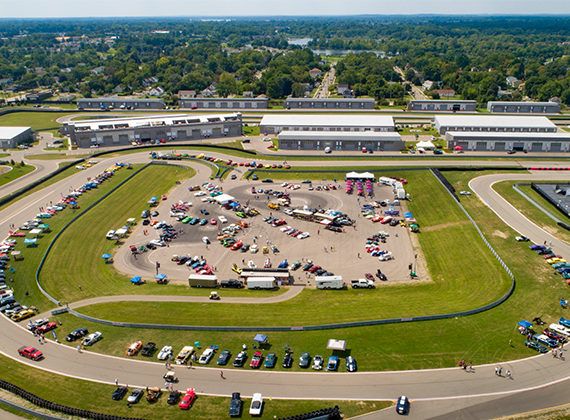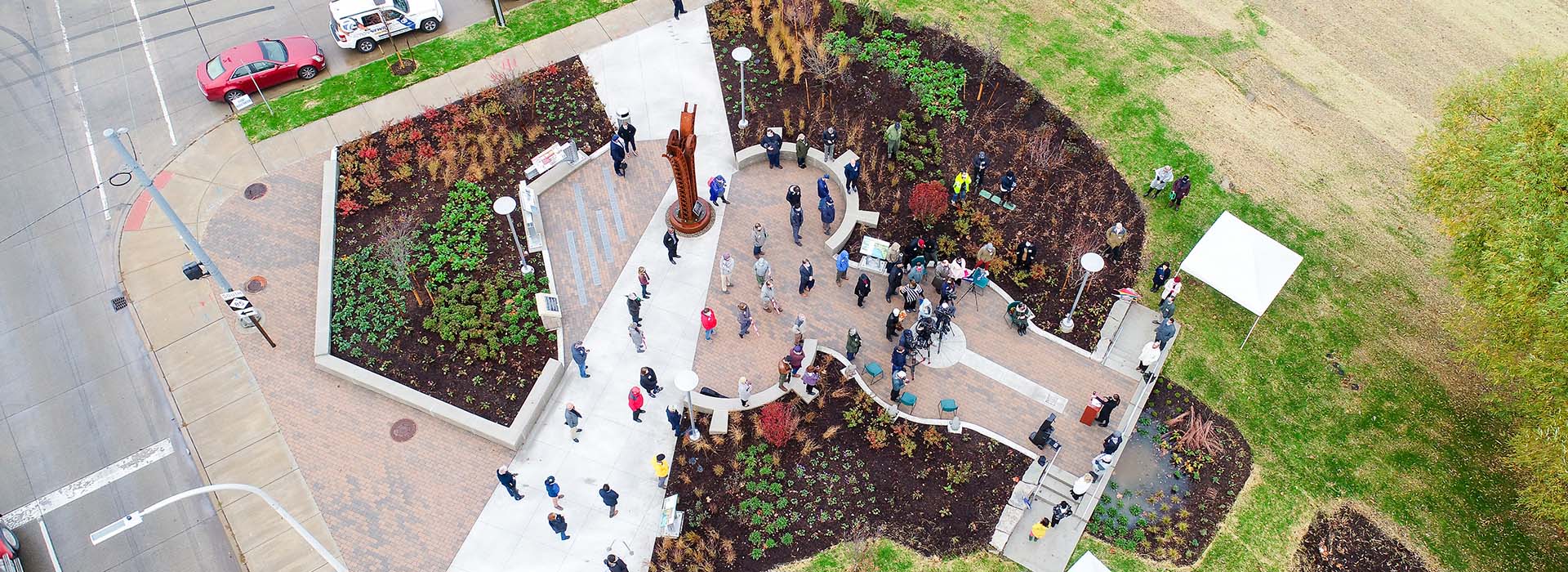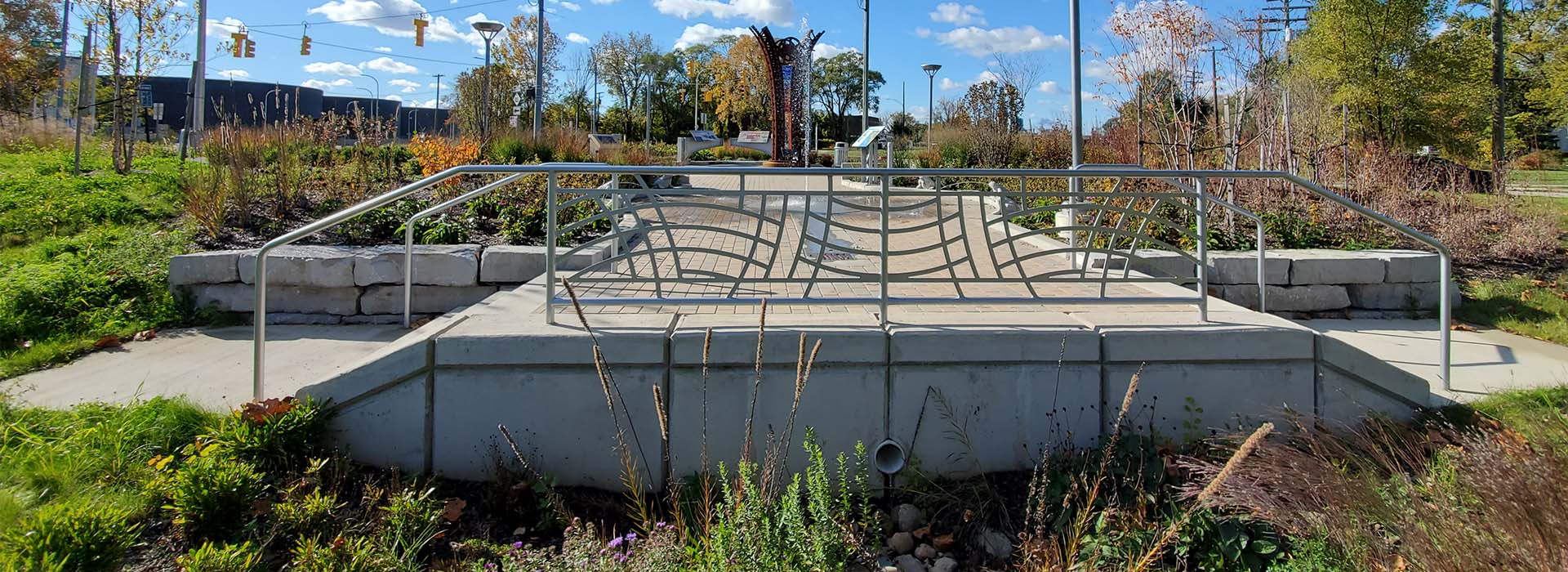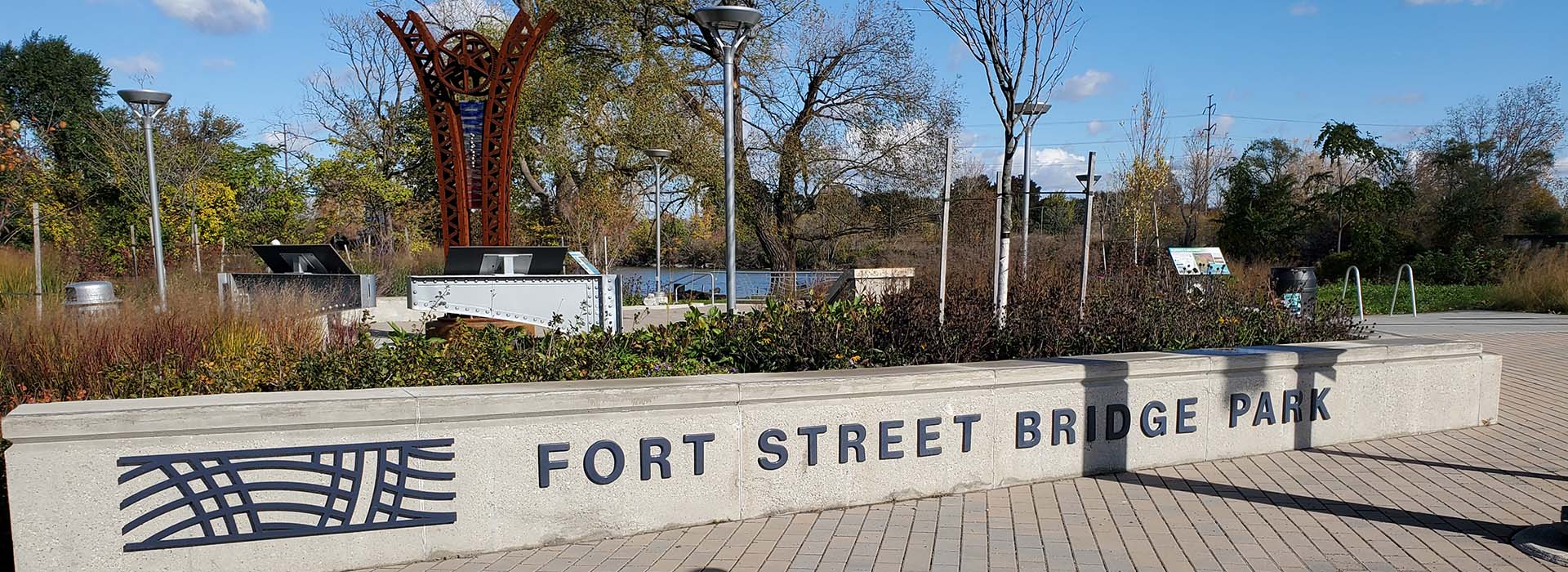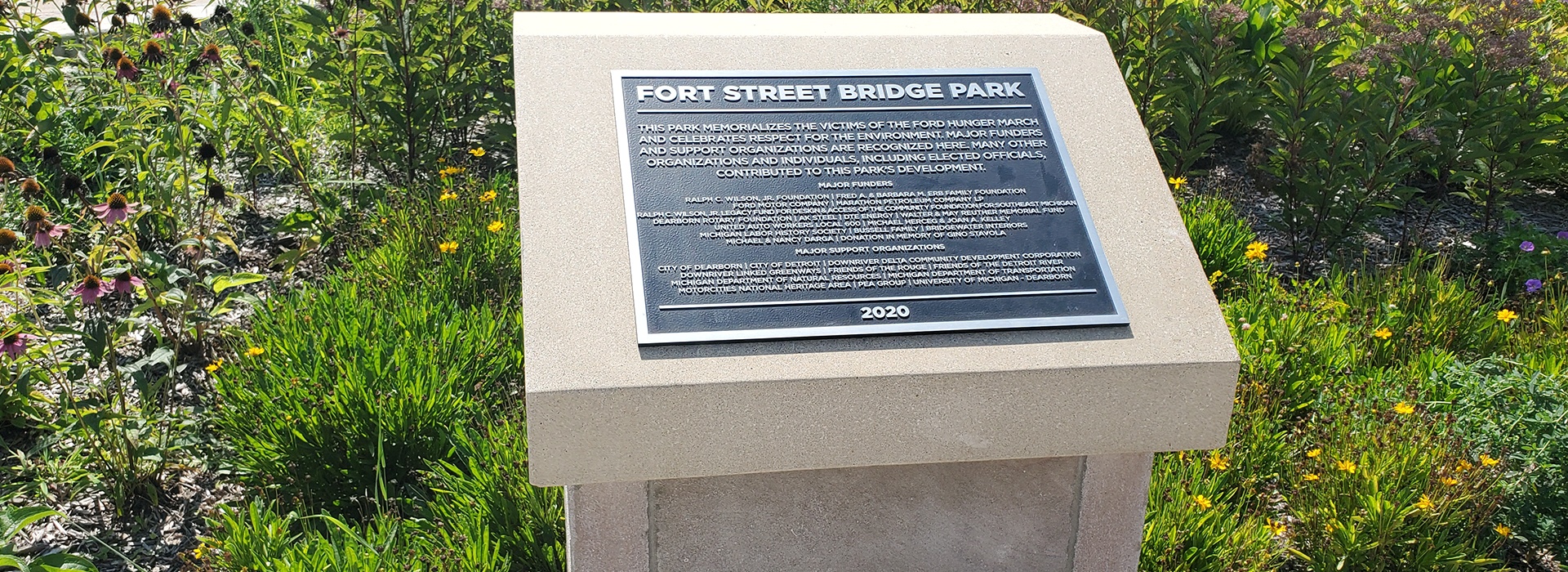The Fort-Rouge Gateway (FroG) Partnership began as a discussion between local and state-level stakeholders to discuss the potential for a transformative place-making project in the vicinity of the Fort Street Bridge, over the Rouge River, in southwest Detroit. The Michigan Department of Transportation’s (MDOT) plans to construct a new bridge accommodating non-motorized transit options at this location provided the impetus for initial meetings. Due to the historical significance of the bridge, related to the 1932 Hunger March and its “bascule” style, and because of its crucial position at the intersection of three proposed or existing greenway systems (the Rouge Gateway Greenway, the Detroit Greenways, and the Downriver Linked Greenways), this site offers a unique opportunity to achieve a positive regional impact.
Fort Rouge Gateway Coalition (FRoG), Marathon Petroleum Co. LP (MPC), and MotorCities National Heritage Area (MNHA) engaged PEA Group to provide fundraising assistance, site inventory and analysis, community engagement, conceptual planning, cost estimating, site plan approval, construction documentation, and construction administration and oversight for the first phase of the Fort Street Bridge Park’s development. Amenities for the park include a gathering plaza with seating and porous pavement, an interactive stormwater management demonstration with fountains and rain garden, native plantings, habitat enhancements, interpretive signage, and a future kayak launch and rest area for the Lower Rouge Water Trail. Interpretive signage narrates the history of the former bridge, as well as demonstrates the environmental and industrial history of the region, including the importance of the waterways. Sculptural and interpretive focal points within the plaza were constructed with salvaged materials from the former bridge.
The park itself is a celebration of the transformation of the Rouge River corridor to support wildlife habitat and provide recreational opportunities. The park serves as a prominent connection of several regional trails and greenways, including the Iron Belle Trail, the Downriver Linked Greenways, Rouge Gateway Greenway, Rouge River Water Trail, and the Detroit Greenways. Wildlife, such as beavers and bald eagles, has returned as what once was considered Detroit’s most neglected and polluted zip code heals. Additionally, the park provides those who were previously economically challenged with an opportunity to now connect with the environment. Fort Street Bridge Interpretive Park will have a lasting, valuable environmental, community, and economic impact for years to come.
